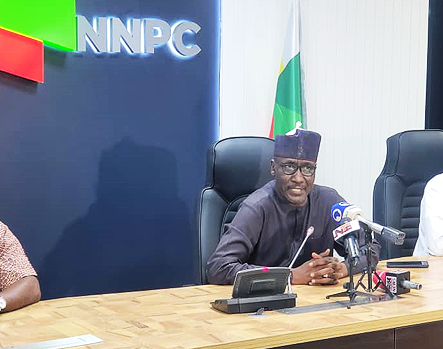The Nigerian National Petroleum Company Limited (NNPC) has become heavily reliant on a series of crude-for-loan deals, committing 272,500 barrels of crude oil per day to a total credit facility of $8.86 billion. As part of this arrangement, NNPC has not only pledged a substantial quantity of crude for diverse loan projects but has also emphasized the urgency of servicing these debts through monthly commitments of approximately 8.17 million barrels. Currently, NNPC has fully repaid $2.61 billion, which amounts to 29.4% of the total borrowed amount, but still has an outstanding debt of $6.25 billion. The report from the Nigeria Extractive Industries Transparency Initiative reveals that out of the total facility, approximately $6.97 billion has been disbursed through seven crude-for-loan arrangements.
Among the various projects funded by this credit facility are significant ventures like Project Panther, Project Bison, Project Eagle Export Funding, Project Yield, and Project Gazelle, each designed to address specific financial needs or to service certain debts. For instance, Project Panther, a collaboration with Chevron Nigeria Limited, secured a $1.4 billion loan with 23,500 barrels per day earmarked for debt repayment. Additionally, Project Bison aimed at acquiring stakes in the Dangote refinery resulted in a $1.04 billion loan with a commitment of 35,000 barrels per day as collateral. Meanwhile, the Project Eagle Export Funding consists of three distinct loans, including an original loan of $935 million and its subsequent tranches, highlighting NNPC’s strategic borrowing approach to meet its ongoing financial obligations.
One of the more ambitious initiatives, Project Yield, aims to support the Port Harcourt Refining Company with a $950 million loan backed by 67,000 barrels per day. However, the operational commencement of fuel production at this refinery has faced numerous setbacks despite the financial commitments. Moreover, Project Gazelle was instituted recently to stabilize Nigeria’s foreign exchange market and includes a forward sale agreement of $3 billion, with 90,000 barrels per day pledged to meet future tax and royalty obligations. By the end of 2023, $2.25 billion from this facility was utilized, with repayments due to start by mid-2024.
In the broader context, Nigeria has been grappling with declining oil production and significant operational challenges. Reports highlighted by NEITI indicate that crude oil output fell to its lowest level in a decade, exacerbating the industry’s financial woes. Between 2022 and 2023, Nigeria saw a marked decline in production, which dropped to 490.94 million barrels before slightly recovering to 537.57 million barrels. This current output still represents only 67.16% of the country’s peak capacity, with a staggering amount of crude oil, amounting to 110.66 million barrels, deferred in 2023 due to maintenance and theft-related issues. Despite governmental efforts to curb these activities, including initiatives aimed at addressing oil theft and sabotage, the operational efficiency continues to deteriorate.
The situation has become dire enough that the House of Representatives’ Special Joint Committee has suspended any further crude-for-loan agreements, highlighting concerns over NNPC’s ongoing pursuit of additional oil-backed loans amidst a backdrop of existing debts. NNPC is reportedly in negotiations for a new $2 billion loan, amid pressures to settle a backlog of $6 billion owed to international oil traders. This precarious position emerges as Nigeria’s government increasingly relies on oil revenues, particularly as reforms are introduced to eliminate fuel subsidies and address the depreciation of the naira currency, which places additional strain on the government’s financial capabilities.
In the face of these challenges, President Bola Tinubu has worked towards instituting critical reforms, including initiating the sale of crude oil to local refineries in naira. Soon, NNPC is expected to supply around 385,000 barrels of crude oil daily to the Dangote refinery, with transactions executed in the local currency. The introduction of this arrangement aims not only to stabilize Nigeria’s foreign exchange market but also to provide much-needed liquidity and support for the country’s oil-dependent economy. As the NNPC navigates this complex financial landscape, it must also consider the risks associated with price volatility and the potential repercussions of its sustained borrowing practices amidst a backdrop of declining production and rampant theft within the oil sector.














